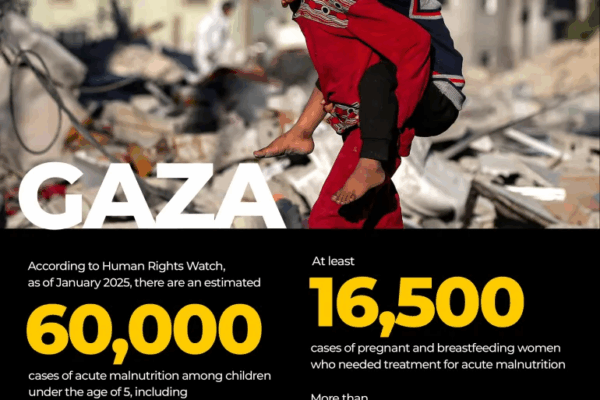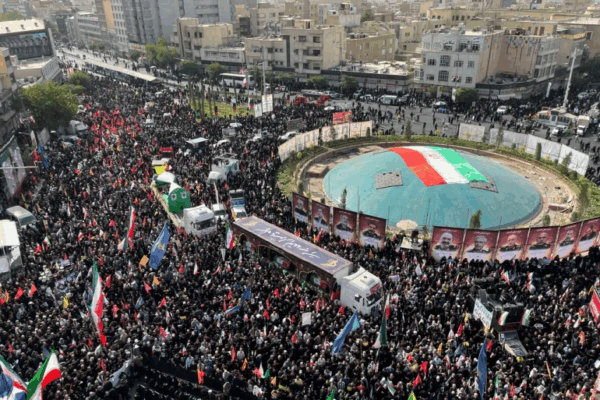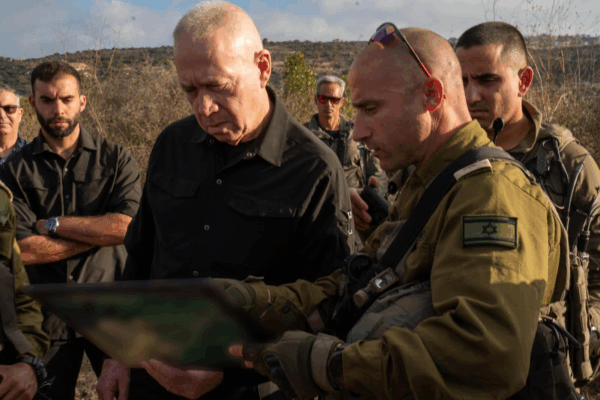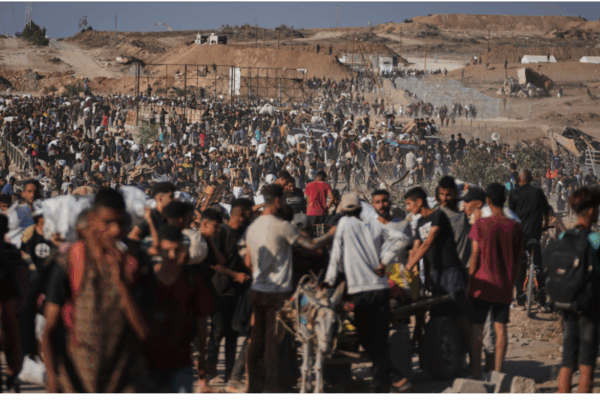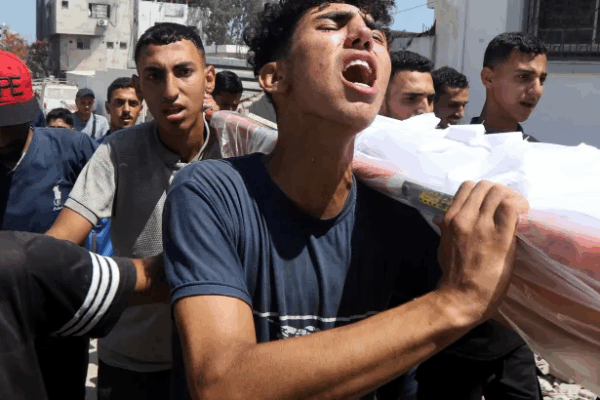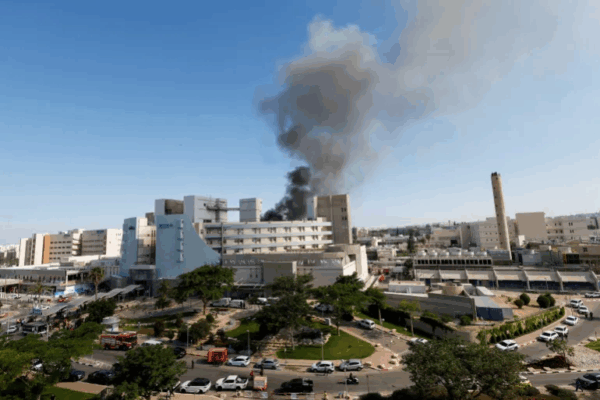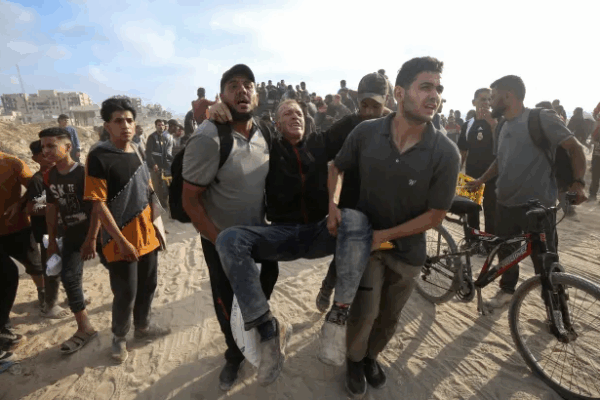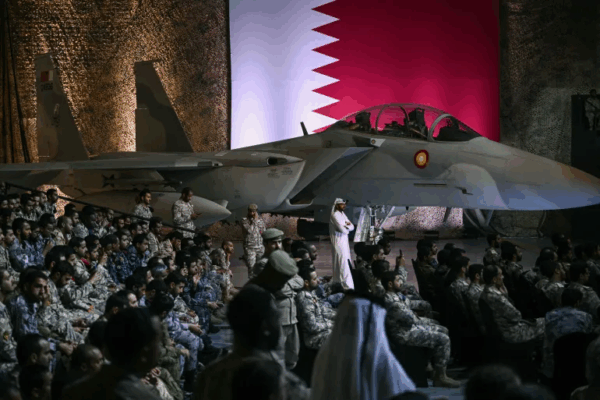Tens of thousands of mourners filled the streets of Tehran on Saturday as Iran held funeral ceremonies for 60 individuals—including senior military commanders, nuclear scientists, and civilians—killed in Israeli airstrikes earlier this month. Beginning at 8:00 a.m. local time (04:30 GMT), state television broadcast live images of large crowds clad in black, waving Iranian flags and holding portraits of the deceased. The ceremony, one of the largest in recent years, took place along the capital’s Azadi Street and featured coffins draped in the national flag, some bearing the images of fallen commanders in uniform. The funeral comes after a 12-day escalation that began on June 13 when Israel launched a wave of strikes across Iran, targeting military installations and nuclear sites. Among those killed were General Hossein Salami, commander of the Islamic Revolutionary Guard Corps (IRGC), and General Amir Ali Hajizadeh, head of the IRGC’s ballistic missile programme. Both were reportedly killed on the first day of the conflict. Other high-profile casualties included Major General Mohammad Bagheri and top nuclear physicist Mohammad Mehdi Tehranchi. The state-run IRIB confirmed that four women and four children were also among the dead. The Israeli strikes, which reportedly received intelligence and logistical backing from the United States, prompted Iran to launch retaliatory missile attacks on Israeli positions and a U.S. military base in Qatar. The conflict concluded with a ceasefire earlier this week. During the funeral, mourners chanted slogans including “Death to America” and “Death to Israel,” signaling continued public outrage over the deadly assault and subsequent U.S. involvement. Iranian Supreme Leader Ayatollah Ali Khamenei has since dismissed American claims that Iran’s nuclear programme was severely damaged, accusing U.S. President Donald Trump of exaggerating the impact of the strikes. Saturday’s public mourning marked the first large-scale ceremony for military officials since the end of hostilities, underlining both the scale of loss and the tense atmosphere that persists in the region.
